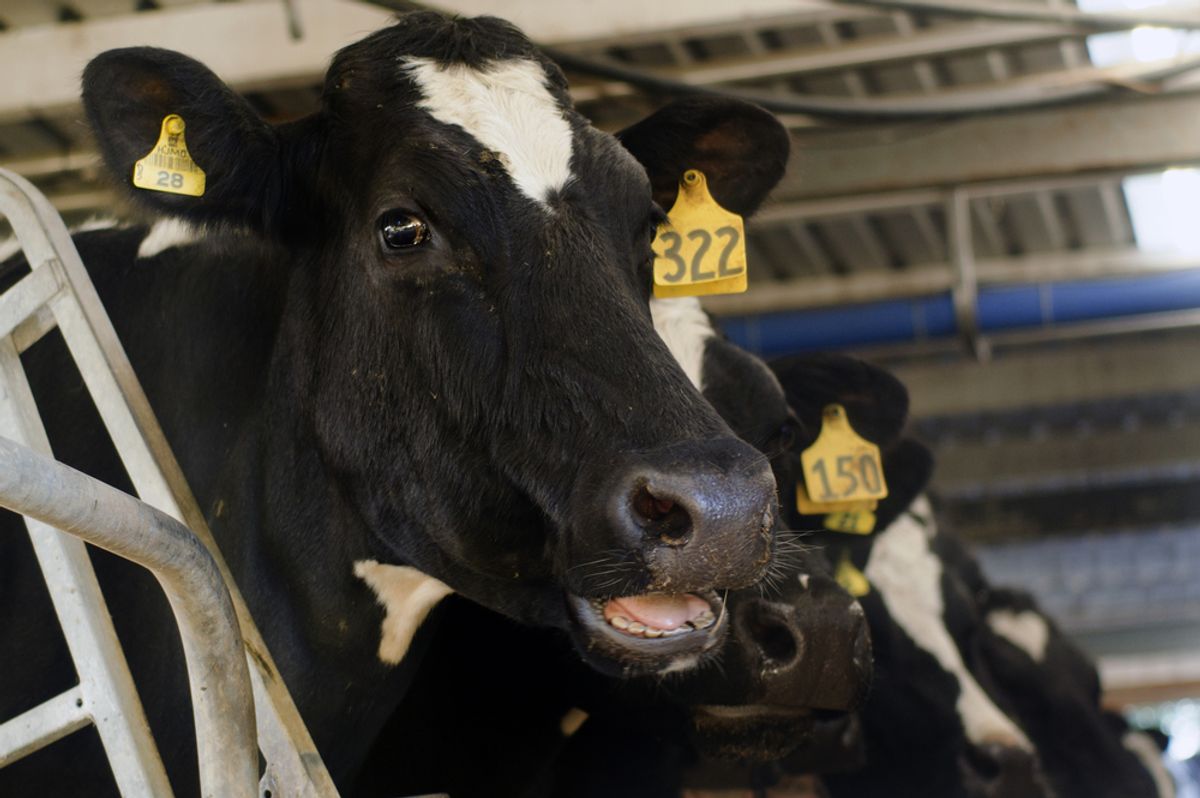Idaho just made it illegal for whistleblowers to expose abusive practices (like these) at Idaho's factory farms.
Following its approval by the state House and Senate Gov. C.L. "Butch" Otter signed a bill into law that will make it illegal for anyone not employed by the farms -- or anyone who misrepresented themselves in order to gain employment -- from making recordings of what goes on there without the operators' explicit consent.
Its passage is sure to be a disappointment to activists, Bob Barker and even the founder of Chobani, who spoke out against the bill. A media report out Thursday, however, suggests that more persuasive forces were working in the bill's favor: one-third of the state senators, 1/5 of the state representatives and Otter himself had accepted funds from the dairy industry.
"Governor Otter has failed Idaho and the American people," said Nathan Runkle, the executive director of Mercy For Animals, the activist group whose undercover investigations prompted the bill. "By signing this bill into law, he has sided with those who seek to keep Idaho's corrupt factory farming practices hidden from public view and created a safe haven for animal abuse and other criminal activity in the state."
Eight other states have enacted such laws, known as "ag-gag" measures, as a response against whistleblower activity. A lengthy Mother Jones feature from last summer explains why this is something everyone -- not just those concerned for animal wellbeing -- should be wary of:
"If you think this is an animal welfare issue, you have missed the mark," said Amanda Hitt, director of the Government Accountability Project's Food Integrity Campaign, who served as a representative for the whistleblowers who tipped off ABC in the Food Lion case. "This is a bigger, broader issue." She likened activist videos to airplane black-box recorders—evidence for investigators to deconstruct and find wrongdoing. Ag gag laws, she said, don't just interfere with workers blowing the whistle on animal abuse. "You are also stopping environmental whistleblowing; you are also stopping workers' rights whistleblowing." In short, "you have given power to the industry to completely self-regulate." That should "scare the pants off" consumers concerned about where their food comes from. "It's the consumer's right to know, but also the employee's right to tell. You gotta have both."



Shares